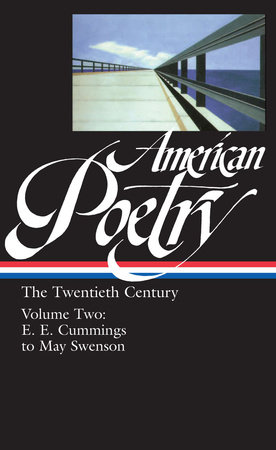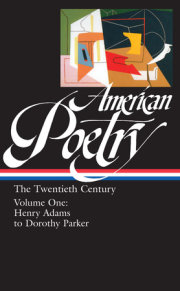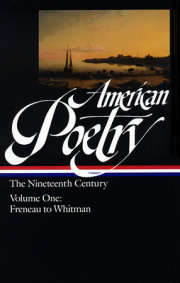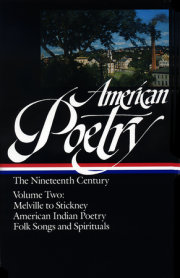“The editing is more than brilliant: It is nearly unimaginable how the Library of America team managed to do so much so well. . . . Every possible kind of poem is here in its best examples. No one has ever done a better anthology of modern American poetry, or even come close.” — Talk
This second volume of the landmark two-volume Library of America anthology of twentieth-century poetry, organized chronologically by the poets’ birthdates, takes the reader from E.E. Cummings (1894–1962) to May Swenson (1913–1989). In the wake of the modernist renaissance, American poets continued to experiment with new techniques and themes, while the impact of the Depression and World War II and the continuing political struggle of African Americans became part of the fabric of a literature in transition. New schools and definitions of poetry seemed often to divide the literary scene. This was the era of the Harlem Renaissance, the Objectivists, the Fugitives, the proletarian poets. It was also an era of vigorously individuated voices—knotty, defiant, sometimes eccentric.
The range of tone and subject matter is immense: here are Melvin B. Tolson’s swirlingly allusive Harlem portraits, Phyllis McGinley’s elegant verse transcriptions of suburbia, May Swenson’s playful meditations on the laws of physics. The diversity of formal approaches includes the extreme linguistic experiments of Eugene Jolas and Abraham Lincoln Gillespie, Rolfe Humphries’s adaptation of traditional Welsh meter, the haiku of Richard Wright, the ballads of Helen Adam and Elder Olson, the epigrams of J.V. Cunningham. A selection of light verse is joined by lyrics from the era’s greatest songwriters, including Robert Johnson, Woody Guthrie, and Ira Gershwin. Several important long poems are presented complete, including Hart Crane’s The Bridge, Louis Zukofsky’s Poem beginning “The” and Robert Penn Warren’s Audubon: A Vision. Rounding out the volume are such infrequently anthologized figures as Vladimir Nabokov, James Agee, Tennessee Williams, and John Cage.
LIBRARY OF AMERICA is an independent nonprofit cultural organization founded in 1979 to preserve our nation’s literary heritage by publishing, and keeping permanently in print, America’s best and most significant writing. The Library of America series includes more than 300 volumes to date, authoritative editions that average 1,000 pages in length, feature cloth covers, sewn bindings, and ribbon markers, and are printed on premium acid-free paper that will last for centuries.






